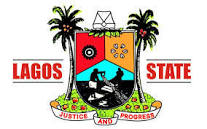A longstanding land dispute that has caused anxiety for residents of the Okun-Ajah and Mayegun areas in Lagos has finally been settled, following decisive intervention by the Lagos State Government.
The resolution was announced during a ministerial briefing held in Alausa, Ikeja, where the Commissioner for Waterfront Infrastructure Development, Ekundayo Alebiosu, praised Governor Babajide Sanwo-Olu for his role in brokering a peaceful and fair outcome.
For over ten years, property ownership in the affected coastal communities had been mired in uncertainty, placing the homes and futures of hundreds of residents at risk. But according to Alebiosu, the administration opted for dialogue and regularisation instead of demolition.
“This administration chose the path of engagement over confrontation,” the commissioner said. “Through the guidance of Governor Sanwo-Olu, we were able to bring affected parties together and find a legal, humane solution.”
At the heart of the issue was the unintentional encroachment on government-owned land by over 200 individuals who had settled in the area without formal titles. What could have led to mass evictions and property losses was resolved with a process that legalised their occupancy, offering them peace of mind and protection under the law.

Alebiosu noted that the alternative forced evictions would have disrupted lives and economic activity across both communities.
“Rather than tearing down homes, we chose to build consensus. This resolution not only prevents loss but upholds the dignity and well-being of those who call these communities home,” he stated.
Residents affected by the regularisation process have reportedly expressed deep gratitude for the intervention, acknowledging the state government’s compassionate approach in protecting their interests.
The successful settlement of the Okun-Ajah and Mayegun land issues underscores Lagos State’s evolving approach to urban management—one that seeks to balance development with social justice.
“This is more than just resolving a dispute,” Alebiosu added. “It is a reflection of the kind of leadership that puts people first, ensuring that progress doesn’t come at the cost of community stability.”




